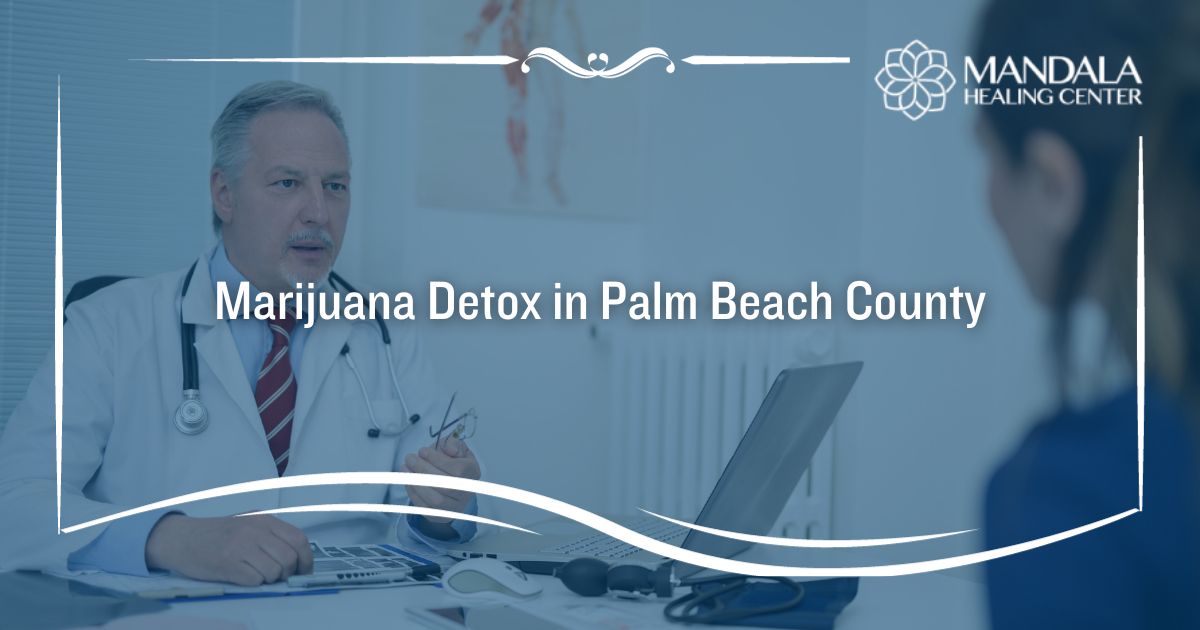Marijuana is one of the most commonly abused substances in America. According to the National Institute on Drug Abuse (NIDA), about 52.5 million people reported using marijuana in 2021.[1]
While marijuana is available in many states for medical or recreational use, it remains illegal federally. Because marijuana is used medicinally, many people believe that the substance is harmless. Unfortunately, this is not the case, as marijuana use can lead to addiction among people who misuse it.
Abruptly stopping the use of marijuana can result in uncomfortable withdrawal symptoms. In severe cases, individuals may need to seek support from a marijuana detox center.
Can You Get Addicted to Marijuana?
When you abuse marijuana repeatedly and have a hard time controlling how much of it you use, you could be struggling with a marijuana use disorder. While many people believe that you cannot get addicted to weed, this is simply not the case.
According to the Centers for Disease Control and Prevention (CDC), “approximately 3 in 10 people who use marijuana have marijuana use disorder.”[2]
The signs of marijuana addiction include:[2]
- Using more marijuana than you intend to
- Desiring to quit cannabis use but being unable to
- Spending a lot of time thinking about, using, or recovering from the effects of weed
- Experiencing strong urges or cravings to abuse marijuana
- Using marijuana despite experiencing problems at home, school, or work
- Continuing to use weed even though it is causing interpersonal relationship issues
- Losing interest in previously enjoyed activities because of cannabis use
- Using marijuana during high-risk situations, such as while driving a car
- Continuing to use cannabis despite experiencing physical or mental health effects
- Needing to use a higher dose of weed to experience the desired effect
- Experiencing withdrawal symptoms when you cannot use marijuana
If you experience the above-mentioned symptoms of a marijuana use disorder, you might be suffering from an addiction. Even though marijuana addiction might not cause the same effects as opioid or alcohol abuse, it still requires professional treatment.
What are the Symptoms of Marijuana Withdrawal?
One of the main signs of marijuana addiction is experiencing withdrawal symptoms when you stop using it. While marijuana withdrawal is usually not life-threatening, Palm Beach County detox centers can provide the support and care required to ease your symptoms and help you avoid continued use.
The symptoms of marijuana withdrawal include:[3]
- Anxiety and irritability
- Anger or aggression
- Insomnia or nightmares
- Depressed mood
- Loss of appetite
- Chills
- Headaches
- Physical tension
- Excessive sweating
- Stomach pains
If you are trying to get sober, attempting to overcome marijuana withdrawal on your own can be challenging, especially if you’ve been using for long periods of time. The symptoms of marijuana withdrawal can be difficult to cope with, often causing people to relapse to relieve their symptoms. Thankfully, medical detox programs for marijuana in Palm Beach County can help you cope with your symptoms safely and comfortably.
What to Expect During Marijuana Detox in Palm Beach County
Palm Beach County detox centers can offer a safe and supportive environment for healing and recovery. Treatment typically involves:
Assessment
Upon arrival at a Palm Beach County detox center, you will begin an initial assessment. The medical team will gather information about your physical health, mental health, history of marijuana abuse, and family history to create an individualized treatment plan. Using this information, the clinical team will create a personalized treatment plan based on your needs rather than taking a one-size-fits-all approach.
Symptom Management
Once you have completed your assessment, the treatment for marijuana withdrawal symptoms will begin. While there is no medication approved for cannabis withdrawal, you may be given medications that limit the symptoms you are experiencing, like antidepressants to control symptoms of depression and sleep aids to improve insomnia.
If you were using marijuana medicinally, you may be given alternative medications to treat your condition.
Treatment Planning
After you have overcome marijuana withdrawal, you will begin treatment planning with your therapist. Typically, this involves deciding whether you should transition into an inpatient, outpatient, or dual-diagnosis rehab program. Many people recovering from cannabis addiction choose to attend both inpatient and outpatient rehab before transitioning into a sober living housing program to help them re-acclimate into everyday living.
Get Connected to a Top-Rated Marijuana Detox Center in Palm Beach County
If you or a loved one suffers from a marijuana or weed addiction, it’s time to seek help. Cannabis use disorder may cause uncomfortable withdrawal symptoms, so your first step in recovery should always be medical detox.
At Mandala Healing Center, we can provide you with compassionate and effective marijuana detox services. Patients who visit the Mandala Healing Center struggle with a variety of addictions. Our caring and attentive team is ready to help each patient find solutions for lasting sobriety and truly heal from within. We are acutely aware that every individual has a unique set of needs. Accordingly, our alcohol and drug detox programs are personalized for each individual, utilizing evidence-based practices and holistic approaches.
To learn more about our marijuana detox center in Palm Beach County, please contact us today.
References:
- The National Institute on Drug Abuse (NIDA): What is the scope of cannabis use in the United States, Retrieved October 2023 From https://nida.nih.gov/publications/research-reports/marijuana/what-scope-marijuana-use-in-united-states
- The Centers for Disease Control and Prevention (CDC): Addiction (Marijuana or Cannabis Use Disorder), Retrieved October 2023 From https://www.cdc.gov/marijuana/health-effects/addiction.html
- The National Library of Medicine (NLM): Clinical management of cannabis withdrawal, Retrieved October 2023 From https://www.ncbi.nlm.nih.gov/pmc/articles/PMC9110555/












